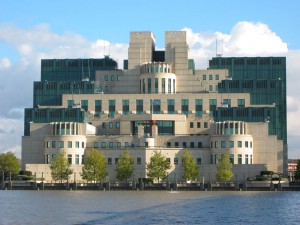 I had a strong sense of déjà vu today, when I read about the woes of Mrs Green, the barrister wife of Tory MP Damien Green who was arrested last November for allegedly encouraging government information leaks.
I had a strong sense of déjà vu today, when I read about the woes of Mrs Green, the barrister wife of Tory MP Damien Green who was arrested last November for allegedly encouraging government information leaks.
Mr Green was arrested under an obscure and antique piece of legislation for “conspiring to commit misconduct in a public office and aiding and abetting, counselling or procuring misconduct in a public office”. This, despite the fact that civil service mandarins had persuaded the Metropolitan Police Special Branch (MPSB) to investigate him because he posed a “serious threat to national security”. The case has now been dropped and reports have now shown that these civil servants significantly overstated the case to spur the police into action.
In such a case the obvious step would have been for the Met to have invoked the draconian 1989 Official Secrets Act. Certainly their heavy-handed response seemed to indicate that this was how they were viewing the gravity of the case, even if they were desperately trying to avoid the attendant scandal such a step would have provoked. Special Branch officers in the Counter-Terrorism squad are not normally sent to rip apart people’s houses for minor offences.
Which takes me back to the interview with the outraged Mrs Green. A barrister specialising in highly confidential child abuse cases, she innocently let the secret police enter her home, only to watch in disbelief as they ripped it apart in what sounds to me like a counter-terrorism style search. They, of course, found nothing relevant to their investigation, but scoured the computers, removed the bedsheets, took away love letters between the Greens, and even rifled through the children’s books.
I suppose I was more fortunate than the hapless Mrs Green. When the secret police ripped apart my home in the same way back in 1997, I was in Europe with my ex-partner and colleague, MI5 whistleblower David Shayler. After we had exposed the fact that MI5 was shamelessly breaking the law, the MPSB had obtained a warrant that allowed them to search our home for material relating to our employment in MI5. As I was away, they jackhammered the front door in, and then spent two days ripping through the flat in Pimlico. It had been my home for 4 years.
Naturally, the police found nothing relevant. That did not deter them from searching the place for two days, and taking away bags of possessions, including some of my underwear, the bedsheets, photographs, and our love letters. They also smashed up chairs and lamps, ripped the bath apart, pulled up the carpets, and scattered my remaining underwear across the bedroom floor. It looked like they had been playing with it.
I saw all this when I returned home a month later, and I felt violated. I know this is a common reaction when one’s home is burgled; but in this case my home had been despoiled by the police, not by criminals. No doubt, some would say that we, and the Greens, deserved this treatment. After all, we had the temerity to expose malpractice, lies, and crime within government circles. We, of course, would argue that we had acted for the public good.
Whatever. I still think that a counter-terrorism style search of a whistleblower’s house is over the top and deliberately intimidatory.
The police may have ransacked my home, but I was never charged with any offence. Nor did I ever did get my underwear or love letters back.….















